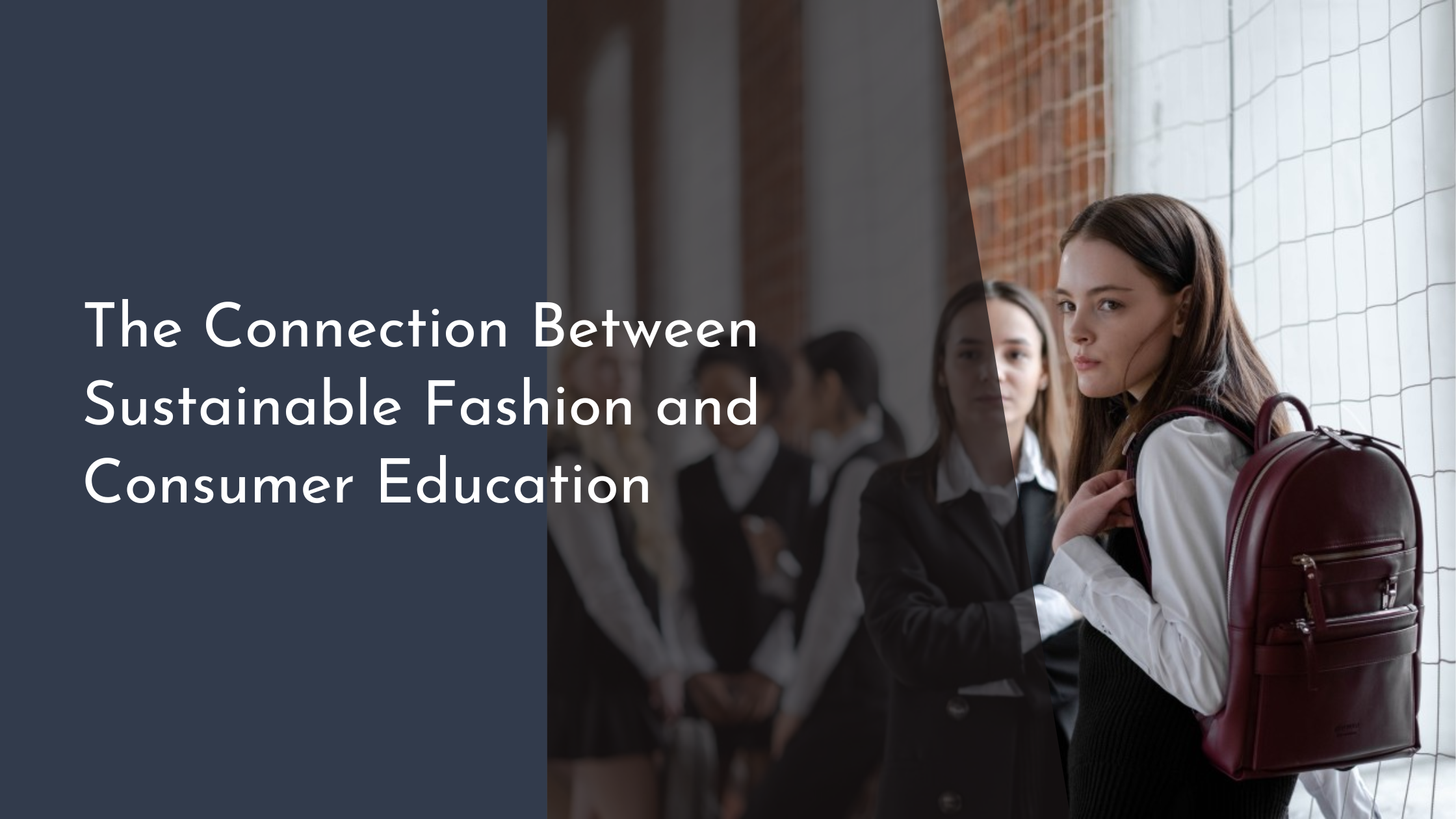The Connection Between Sustainable Fashion and Consumer Education
In recent years, the fashion industry has witnessed a profound transformation towards sustainability, marking a shift away from the conventional fast fashion model. Central to this revolution is the role of consumer education, which empowers individuals to make informed choices that contribute to a more sustainable and ethical world. As we delve into the intricate dynamics between sustainable fashion and consumer education, it becomes clear that knowledge is a powerful tool in fostering a greener, more conscious fashion future.
Understanding Sustainable Fashion Basics
Sustainable fashion goes beyond trendy buzzwords; it encompasses a comprehensive approach to the entire lifecycle of clothing. From the sourcing of raw materials to manufacturing, distribution, and end-of-life disposal, sustainable fashion aims to minimize environmental impact and prioritize ethical practices. It involves using eco-friendly materials such as organic cotton, bamboo, and recycled fibers, as well as ensuring fair labor practices and reducing waste through circular fashion models. By understanding these basics, consumers can start recognizing the environmental and ethical footprint of their wardrobe choices.
Education is crucial in demystifying the complexities of sustainable fashion. Many consumers may not be aware of the resource-intensive processes involved in traditional fashion or the environmental ramifications of fast fashion. Educating them about these impacts, alongside the benefits of sustainable alternatives, can lead to more informed purchasing decisions. Incorporating lessons on sustainability in fashion schools and public workshops can help bridge the gap between consumers and the knowledge they need to make a difference in the industry.
How Consumer Education Drives Change
Consumer education plays a pivotal role in driving change across the fashion industry. By educating shoppers about the power of their purchasing choices, it encourages a shift towards more mindful consumption. When consumers understand the impact of fast fashion—such as pollution, resource depletion, and poor working conditions—they are more likely to support brands that prioritize sustainability. This increased demand for sustainable products pressures companies to adopt more ethical and environmentally friendly practices.
Moreover, educated consumers often become advocates for change, influencing their peers and wider communities. By sharing information and encouraging sustainable practices, they contribute to a ripple effect that magnifies the impact of their choices. Workshops, seminars, and social media campaigns are effective tools for spreading awareness and inspiring collective action. As more people become informed about the benefits of sustainable fashion, the industry is compelled to evolve in response to growing consumer demand.
The Role of Technology in Fashion Education
Technology is an invaluable ally in the mission to educate consumers about sustainable fashion. With the rise of digital platforms and social media, information is more accessible than ever. Online courses, webinars, and virtual workshops provide consumers with the knowledge they need in convenient and engaging formats. Educational apps can help users track their fashion footprint and suggest sustainable alternatives, making informed decision-making easier and more integrated into daily life.
Furthermore, technology enhances transparency within the fashion industry. Blockchain technology, for instance, can trace the journey of a garment from raw material to finished product, providing consumers with detailed insights into a brand’s supply chain practices. Virtual reality experiences can also immerse consumers in the sustainable practices of fashion brands, offering a firsthand look at ethical production processes. By leveraging technology, the fashion industry can effectively educate and engage consumers in sustainability.
Building a Greener Future Through Awareness
Raising awareness about sustainable fashion is pivotal in building a greener future. When consumers are aware of the impact their choices have on the environment and society, they are more likely to support initiatives that promote sustainability. This awareness encourages brands to innovate and adopt greener practices, leading to an industry-wide transformation. By fostering a culture of conscious consumption, we can collectively work towards reducing the fashion industry’s environmental footprint.
The path to a sustainable fashion future is paved with informed consumers who are motivated to make a difference. Educational initiatives, combined with technological advancements, are key to nurturing this awareness. As consumers become more knowledgeable, they drive demand for sustainable products, compelling brands to align with these values. Through education and awareness, we can create a fashion industry that respects both people and the planet, ensuring a brighter, more sustainable future for generations to come.
The journey towards sustainable fashion is a collaborative effort, with consumer education serving as a catalyst for meaningful change. By understanding the intricacies of sustainable practices and embracing the power of knowledge, consumers can drive the fashion industry towards a more ethical and environmentally conscious path. As technology continues to break down barriers to information, the opportunity for widespread awareness and action grows. Together, through informed choices and shared understanding, we can weave a fabric of sustainability into the very heart of fashion.

